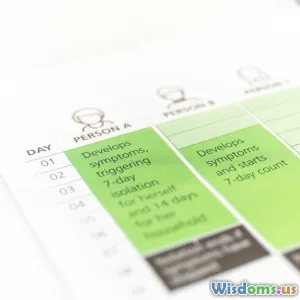
Effective Blogging Strategies
4 min read Discover key strategies to enhance your blogging efforts and engage your audience effectively. (0 Reviews)
Effective Blogging Strategies
Creating a successful blog requires more than just writing well; it involves a strategic approach to content creation that resonates with your audience. In this article, we will explore effective blogging strategies that will help you engage your readers, increase your blog's visibility, and ultimately achieve your blogging goals.
Understand Your Audience
To create compelling content, you must first understand who your audience is. Conduct research to identify their interests, pain points, and preferences. Use tools like surveys, social media analytics, and website metrics to gather insights. Knowing your audience will help tailor your content to their needs, increasing engagement and loyalty.
Develop a Content Calendar
A content calendar is an essential tool for organizing your blog posts and ensuring consistency in your publishing schedule. Plan out your topics, deadlines, and any relevant events or seasons that may influence your content. This proactive approach allows you to stay ahead of trends and maintain a steady flow of fresh content.
Focus on Quality Over Quantity
While it's important to publish regularly, the quality of your content should never be compromised. High-quality content establishes your authority, builds trust with your readers, and encourages them to share your posts. Aim for well-researched, informative, and engaging articles that provide genuine value to your audience.
Optimize for SEO
Search Engine Optimization (SEO) is crucial for increasing your blog's visibility on search engines. Use relevant keywords naturally throughout your posts, create descriptive meta tags, and optimize your images. Additionally, focus on building backlinks and improving page load speed to enhance your site's performance.
Engage with Your Readers
Building a community around your blog is vital. Encourage comments on your posts and respond promptly to foster discussions. Use social media platforms to connect with your audience, share your content, and listen to their feedback. Engaging with your readers creates a loyal following and enhances your blog's reach.
Promote Your Content
Don’t rely solely on organic traffic; actively promote your blog through various channels. Share your posts on social media, collaborate with other bloggers, and consider guest posting on reputable sites within your niche. You can also utilize email marketing to keep your subscribers updated on new content.
Analyze and Adjust
Regularly analyze your blog's performance using tools like Google Analytics. Track metrics such as page views, bounce rates, and user engagement to understand what works and what doesn’t. Use this data to adjust your strategies, refine your content, and improve your overall blogging approach.
Conclusion
Effective blogging is an ongoing process that requires strategic planning, audience engagement, and quality content creation. By implementing these strategies, you can enhance your blog's effectiveness, build a loyal readership, and achieve your blogging objectives. Remember, success in blogging doesn’t happen overnight; it’s a journey that requires patience and persistence.
Rate the Post
User Reviews
Popular Posts




















